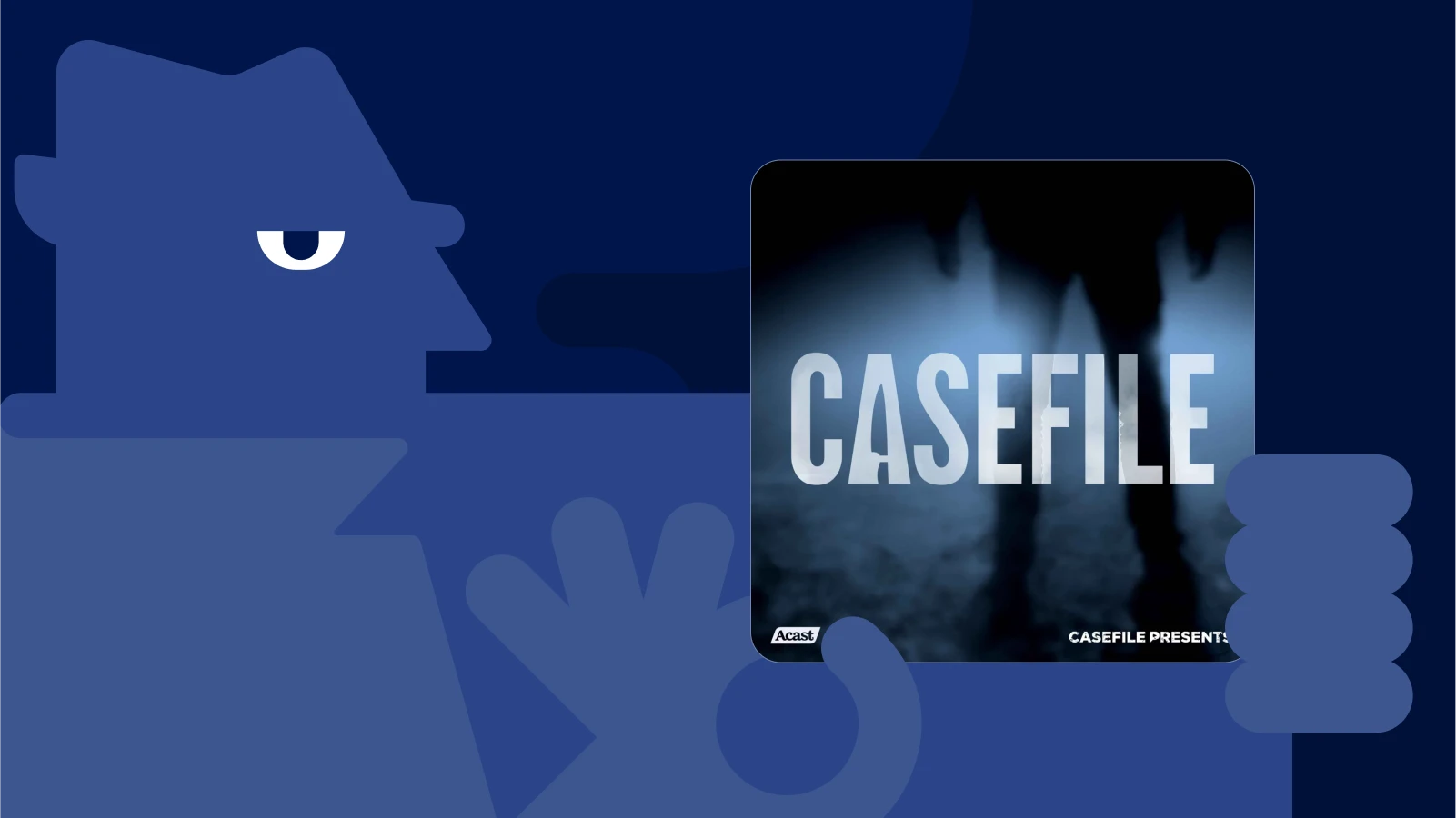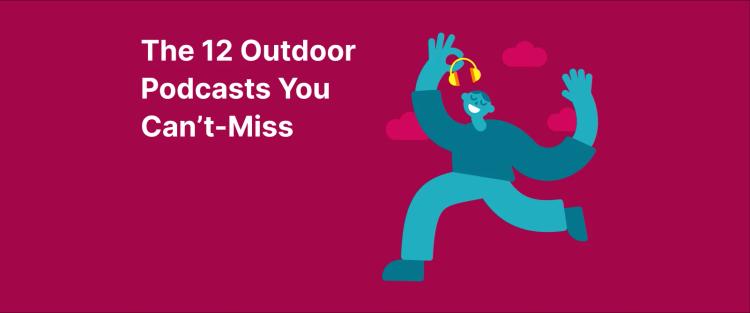Throughout history, people have enjoyed scary stories about real crimes. This interest likely started when people gathered around fires at night, sharing tales that sparked their imagination. People like feeling scared, but in a way that feels safe. Crime stories offer a fun and exciting way to experience fear without real danger.
What if the next story you hear was so twisted that you suspected everyone? Witnesses who disappear, details that don't add up, and an ending that will haunt you for a long time. If you love solving crimes, catching liars, and piecing together a puzzle from scattered facts, these true crime podcasts will hook you from the first minute.
📘 Understand criminal minds with psychology summaries — get Headway today!
In this article, we'll reveal:
Ten best true crime podcasts
My Favorite Murder
Crime Junkie
Casefile
Sword and Scale
Morbid
Bear Brook
Dateline NBC
48 Hours
The Idaho Murders: The Case Against Bryan Kohberger
In the Dark
How can you deepen your understanding of forensics and investigations through books?
Modern trends in true crime
Top 10 true crime podcasts to listen to
You can find these podcasts on special platforms such as Apple Podcasts, Google Podcasts, Spotify, and Wondery. We also suggest you look at selections of the best podcasts about science, politics, or religions.
1. My Favorite Murder
Each week, Karen Kilgariff and Georgia Hardstark select a true crime case or story to discuss. They uniquely blend crime and comedy in their discussions of listener-submitted serial murders, mysterious cold cases, iconic events, and personal hometown murders. They informally approach the facts of each case, incorporating humor, compassion, and thorough analysis.
Topics such as mental health, women's rights, witness experiences, and personal life experiences are all fair game.
The podcast launched in January 2016 and quickly became hugely popular. Its listeners call themselves Murderinos and often say that the podcast has helped them cope with anxiety and find support.
Episode duration: from 60 to 120 minutes, there is a format of mini episodes of 30-45 minutes
Best for: Those who enjoy a blend of humor and horror, and audiences seeking a podcast community of like-minded individuals to discuss their listens.
2. Crime Junkie
Ashley Flowers and her longtime friend Brit Prawat host this weekly true crime podcast. Each episode covers real-life cases, such as missing persons, unsolved murders, and mysterious deaths, highlighting both high-profile and local cases that have shaken up communities.
Ashley provides a detailed narrative flow, while Brit adds questions and reactions. Their chemistry creates a friendly conversational atmosphere, almost as if the listener is sitting in a cafe with two friends discussing a case. Crime Junkie is the backbone of the Audiochuck podcast network, which Ashley founded. The network also produces podcasts like The Deck and Anatomy of Murder.
Episode duration: 30-60 minutes
Best for: Those who prefer short and informative episodes with a minimum of jokes and everyday digressions. The main thing is facts and investigations.
3. Casefile
This engaging podcast features an anonymous Australian host who presents meticulously researched cases. It allows listeners to explore fascinating crime stories while becoming familiar with a specific accent. The podcast features stories from around the world, including Australia, the US, the UK, Canada, and more.
Each episode lasts about an hour and discusses crimes involving incomprehensible or extraordinary circumstances. With no unnecessary emotions, just facts, the podcast's exceptional attention to detail offers comprehensive timelines, geographical context, and thorough background information. The podcast's tagline, "fact is scarier than fiction," fits perfectly with the narrator's distinctive baritone voice and measured delivery.
Episode duration: 45-90 minutes
Best for: Those who like deep, detailed investigations without jokes or humor, who want detailed, structured, and factual stories about real crimes.
4. Sword and Scale
This podcast highlights the work of law enforcement agencies and the criminal justice system involving cases of grave and brutal crimes. Mike Boudet recounts true crime stories with a dynamic 360° perspective — incorporating 911 calls, court records, interviews with victims, witnesses, and sometimes suspects to create vivid, emotionally charged stories.
Murders, disappearances, rapes, and other crimes, right down to the most brutal cases, comprise the podcast's repertoire. Boudet often explores the psychological aspects of criminal behavior and societal factors that contribute to violence. New episodes appear approximately twice a month and last up to one hour.
Episode duration: 60-120 minutes
Best for: Those who are not afraid of violent or shocking themes and those who appreciate dramatic and psychological presentations.
📘 Understand the psychology behind crime — get Headway now!
5. Morbid
This American true crime and creepy history anthology is hosted by forensic pathologist Alaina Urquhart and her hairdresser niece, Ash Kelley.
The podcast covers real-life crime, from serial murder cases and high-profile disappearances to lesser-known cold cases and mystical or supernatural stories: ghosts, legends, forgotten stories, and mysterious phenomena.
Alaina dissects criminal cases from a forensic perspective. Her background in psychology, biology, and criminal law gives her depth and insight into the investigation and death process. The podcast is a regular on Apple Podcasts and Spotify, ranking in the top 10 or 20 of the most popular shows in the United States.
Episode duration: 60-120 minutes
Best for: Those interested in mysticism, spooky events, and the topic of death.
6. Bear Brook
This detailed true crime journalism show, produced by New Hampshire Public Radio and hosted by reporter Jason Moon, has two seasons and focuses on complex criminal cases from New Hampshire.
The podcast's 19 episodes span two seasons, with a new show airing weekly. Each episode is of varying length and includes interviews, reenactments, and commentary on the case's technical, legal, and moral aspects. The podcast explains how the use of genetic genealogy has changed forensics. The stories span decades and multiple victims and suspects. Stephen King called both episodes the best true-crime podcasts he has ever heard.
Episode duration: 30-60 minutes
Best for: Those who like serious and detailed true crime stories in the format of documentary investigative journalism.
7. Dateline NBC
This investigative podcast is an audio version of the legendary NBC true crime journalism show Dateline, which boasts over 1,000 episodes as of the date of this article. The stories are told in a classic story-driven style: introduction to the case, evidence gathering, plot development, the conclusion of the investigation, and emotional payoff.
It's classic true crime style with a calming and professional delivery. The podcast features original investigative journalism, real reporters, and high journalistic standards. Dateline NBC covers decades of cases, ranging from cold cases to recent high-profile stories, including that of Ghislaine Maxwell and Jeffrey Epstein.
Episode duration: 45-60 minutes
Best for: For those who appreciate a factual, journalistic, and structured approach to true crime and fans of true crime television shows
8. The Idaho Murders: The Case Against Bryan Kohberger
This true-crime podcast on the True Crime Today platform details the case of Bryan Kohberger, a doctoral student in criminology. Kohberger was sentenced to life in prison without parole on July 23, 2025, after pleading guilty to murdering four University of Idaho students in a home near campus in November 2022.
Each episode meticulously details the investigation, using DNA genealogy, cell tower data, surveillance video, vehicle movement, and behavioral strategies that led to Koberger's arrest. The podcast includes in-depth psychological profiles of the suspect, detailing his motivations, personal records, behavioral patterns, and possible self-investigative criminal interest.
Episode duration: 15–50 minutes
Best for: For fans of criminal psychology and those who want to stay up to date on the latest news on the case.
📘 Understand the psychology behind crime — try Headway!
9. 48 Hours
CBS News's 48 Hours podcast is known for its journalistic grit and factual depth. With over 880 episodes, it covers a wide range of crimes: murders, disappearances, wrongful convictions, and cold cases. Some of these cases have led to the rehabilitation of suspects or sparked new investigations. 48 Hours has the power to influence real-life legal decisions, gives victims a voice, and looks deeper than superficial sensationalism.
The award-winning podcast has received recognition at the highest levels, including a DotComm Awards Gold in the True Crime category and the New York Festivals Radio Award for Best Documentary/Narrative Podcast Series.
Episode duration: 45-60 minutes
Best for: Those looking for serious, detailed, and factual investigations of real crimes while maintaining the style of a television show.
10. In the Dark
Each season of this premium series, focused on investigative journalism and true crime and hosted by journalist Madeleine Baran, reveals one high-profile criminal case or social problem. The podcast's take is unique, not in the style of whodunit, but through the prism of an investigation by law enforcement officers and systemic shortcomings that prevented justice from being served.
It touches on the topics of law enforcement weakness, racism, military immunity, and prejudice, combining rigorous reporting with compelling exposé storytelling. In 2019, it was the first podcast in the world to receive the George Polk Award, a prestigious journalistic distinction.
Episode duration: 30-45 minutes
Best for: For fans of investigative journalism, unique in the true crime genre for raising issues of social justice.
Enjoy podcasts? Try books: Explore true crime stories with concise summaries
Reading books on forensics, body language, and the psychology of crime can give you intellectual pleasure and practical benefits in everyday life. Books on body language and the psychology of a criminal help you analyze people's motives. Crime stories develop analytical thinking; you learn to construct a holistic picture from facts. This is a reading that is both fascinating and educational.
1. 'Catch and Kill' by Ronan Farrow is in-depth and shocking investigative journalism that exposes the systemic practice of "catch and kill" — buying scandalous stories from the media and then silencing them.
"Ultimately, the reason Harvey Weinstein followed the route he did is because he was allowed to, and that's our fault. As a culture, that's our fault." ― Ronan Farrow, 'Catch and Kill'
Farrow details his investigation into Harvey Weinstein's sexual assault and its systematic cover-up in Hollywood and the media, including the intervention of NBC and the National Enquirer. The book combines Farrow's reporting and memoirs with the stories of victims and journalists, demonstrating systemic problems in the media and power.
The book's emotional tension contains elements of espionage, legal manipulation, private surveillance, and intimidation. 'Catch and Kill' reveals how the system of the rich and powerful destroys the truth and how journalistic courage can pierce the iron wall of concealment.
2. 'If You Tell' by Gregg Olsen is a tough, but intense, journalistic investigation of a real family tragedy.
Around 2019, the three Knotek sisters approached true-crime writer Gregg Olsen to tell an incredible story about their sadistic mother. They had kept silent about their terrible childhood: about scenes of abuse, torture, and murder. The sisters decided to tell people the truth, afraid that their mother, now released from prison, would start killing again.
'If You Tell' is a psychological thriller-saga about the strength of the human spirit and the power of sisterly love in the face of incredible horrors, fear, and despair. The domestic crimes committed behind closed doors are terrible and incomprehensible. But more so is the fear victims feel about speaking out for help, afraid they won't get it. Domestic violence, both physical and psychological, is something that neither victims nor witnesses openly and freely discuss.
3. 'What Every Body Is Saying' by Joe Navarro is a handy guide for those who want to learn more about the nonverbal signals we perceive in everyday life. Former FBI special agent Joe Navarro worked in counterintelligence for 25 years and is one of the world's leading experts on nonverbal communication and body language.
"The problem is that most people spend their lives looking but not truly seeing, or, as Sherlock Holmes, the meticulous English detective, declared to his partner, Dr. Watson, 'You see, but you do not observe." ― Joe Navarro, 'What Every Body is Saying'
Each chapter is devoted to a different body part and contains more than four hundred behavioral patterns, explaining how behavior changes depending on emotions and situations. For example, changes in the lips can express a reluctance to share information. The book also teaches the meanings of gestures and gives tips for recognizing emotions.
📘 Learn about human behavior and crime — download Headway now!
Emerging trends in true crime podcasts
Trends in the true crime genre include the rise of documentary series and podcasts, a focus on complex crime investigations, and an analysis of the psychology of criminals and victims. The genre appeals to a broad audience, especially women, and often explores issues of fear, control, unsolved mysteries, and human connection.
True crime podcasts are a recent trend. Why and how did they become popular?
True crime as advocacy: Today's true crime podcasts increasingly go beyond "shock content" to explore deeper social issues — racial inequality, bias in the law enforcement system, unequal access to justice. Such podcasts not only inform, but also raise important social issues.
Playing on the instinct of fear: Fear likely contributes to the popularity of true crime podcasts. These programs often delve into horrific crimes, which can trigger a fear response and an adrenaline rush in listeners.
Serialized investigations: Another reason for the popularity of true crime podcasts is their serialized format, where events unfold sequentially.
Storytelling as the core: Podcasts that explore crime in episodic segments effectively leverage a storytelling approach. Adding detail to a story makes it more vivid and believable. Specific details like time, place, and connections to current events or other stories help create stronger audience engagement.
Sound design with special effects: Podcasts may use music or other sound effects to maximize the intended impact or shock value.
Start your true crime journey today with the Headway app
Podcasts are a convenient format that you can listen to on the go. Did you know that you can read and listen to Headway's collection of famous non-fiction book summaries as a podcast?
If you enjoy criminalistics — after all, you've explored the best true crime podcasts — you might be interested in our book collections on crime or critical thinking. Improve your deduction, analysis, and critical thinking skills with our selection of bestselling book summaries.
Headway is a microlearning app that lets you quickly absorb the key ideas from books by listening to or reading concise summaries. In just 15 minutes, you can grasp the main concepts of a book. Isn't that convenient?
Instead of scrolling through social media, let's dedicate 10-15 minutes daily to learning and personal growth. Experience the effectiveness of the app for yourself!
📘 Download the Headway app for the best books based on your goals and interests.
Frequently asked questions (FAQs) on the best true crime podcasts
What are the best true crime podcasts for beginners?
Here are some of the best true crime podcasts to start with if you're new to true crime. They have compelling storylines, accessible storytelling, and a balance of case details: Crime Junkie, Serial, Dateline NBC, Morbid, and My Favorite Murder. Start with well-known or completed cases.
Which true crime podcasts have the highest ratings?
Here's a selection of the best true crime podcasts, ranked by ratings and listeners' preferences.
In the Dark is a Peabody-awarded podcast that explores systemic failures in criminal cases.
Casefile was named the best true crime podcast without the exploitation of horror. Over the decade, the audience has grown to 80 million listeners on Apple and Spotify alone.
Crime Junkie won the iHeart Podcast Awards for Best Crime Podcast in 2024.
Criminal ranks first according to Entertainment Weekly for the depth of stories and empathy.
Are there any true crime podcasts that focus on cold cases?
Here is a list of the best true crime podcasts that focus on unsolved or cold cases that are worth checking out:
Bear Brook investigates several decades-long unsolved murders in New Hampshire that led to innovations in forensic science.
Casefile's many episodes focus on cold cases, specifically cases that remain unsolved even after decades.
Crime Junkie often looks at unsolved cases, with an emphasis on raising awareness about them.
What are true crime podcasts based on real cases?
Here's a selection of true crime podcasts based on real cases, from high-profile trials to unsolved disappearances:
Serial podcast combines journalism, interviews with witnesses, police, lawyers, and the host's personal reflections.
Casefile is based on both solved and cold cases from around the world, with police reports and witness statements.
Dr. Death tells stories of cases of medical malpractice. The story of neurosurgeon Christopher Dunch, who seriously injured and sometimes killed his patients, is a popular episode.
Are true crime podcasts real?
Yes, true crime is always based on real events. This genre recounts real crimes, murders, disappearances, fraud, serial killers, and trials. It is based on real facts, testimonies, documents, and interviews. It often contains journalistic investigations and can cover both solved and cold cases (unsolved).












